Related Research Articles
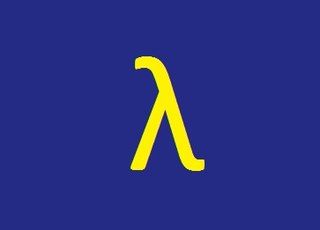
The Gay Activists Alliance (GAA) was founded in New York City on December 21, 1969, almost six months after the Stonewall riots, by dissident members of the Gay Liberation Front (GLF). In contrast to the Liberation Front, the Activists Alliance solely and specifically served to gay and lesbian rights, declared themself politically neutral and wanted to work within the political system.

Gay Liberation Front (GLF) was the name of several gay liberation groups, the first of which was formed in New York City in 1969, immediately after the Stonewall riots. Similar organizations also formed in the UK, Australia and Canada. The GLF provided a voice for the newly-out and newly radicalized gay community, and a meeting place for a number of activists who would go on to form other groups, such as the Gay Activists Alliance, Gay Youth New York, and Street Transvestite Action Revolutionaries (STAR) in the US. In the UK and Canada, activists also developed a platform for gay liberation and demonstrated for gay rights. Activists from both the US and UK groups would later go on to found or be active in groups including ACT UP, the Lesbian Avengers, Queer Nation, Sisters of Perpetual Indulgence, and Stonewall.
Gay News was a fortnightly newspaper in the United Kingdom founded in June 1972 in a collaboration between former members of the Gay Liberation Front and members of the Campaign for Homosexual Equality (CHE). At the newspaper's height, circulation was 18,000 to 19,000 copies.

ONE National Gay and Lesbian Archives at the University of Southern California Libraries is the oldest existing lesbian, gay, bisexual, and transgender (LGBT) organization in the United States and one of the largest repositories of LGBT materials in the world. Located in Los Angeles, California, ONE Archives has been a part of the University of Southern California Libraries since 2010. ONE Archives' collections contain over two million items including periodicals; books; film, video and audio recordings; photographs; artworks; ephemera, such as clothing, costumes, and buttons; organizational records; and personal papers. ONE Archives also operates a small gallery and museum space devoted to LGBT art and history in West Hollywood, California. Use of the collections is free during regular business hours.
The Utah Pride Center (UPC) is a tax-exempt nonprofit organization in Salt Lake City. It provides services, events and activities to lesbian, gay, bisexual and transgender (LGBT) people in Utah. The center manages annual and ongoing projects including the Utah Pride Festival.
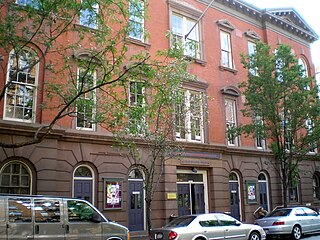
The Lesbian, Gay, Bisexual & Transgender Community Center, commonly called The Center, is a nonprofit organization serving the lesbian, gay, bisexual and transgender (LGBT) population of New York City and nearby communities.
Switchboard, formerly Brighton & Hove LGBT Switchboard, is a British listening service or hotline, for the LGBT communities based in Brighton. It service was launched, with just one telephone, in April 1975 at the Open Cafe, a centre for alternative politics, at 7 Victoria Road. It was started by four men and two women and was initially known as The Lavender Line.

Switchboard is the second-oldest LGBT+ telephone helpline in the United Kingdom, launched the day after Edinburgh Befrienders.

LGBT pride is the promotion of the self-affirmation, dignity, equality, and increased visibility of lesbian, gay, bisexual, and transgender (LGBT) people as a social group. Pride, as opposed to shame and social stigma, is the predominant outlook that bolsters most LGBT rights movements. Pride has lent its name to LGBT-themed organizations, institutes, foundations, book titles, periodicals, a cable TV channel, and the Pride Library.
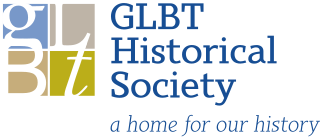
The GLBT Historical Society maintains an extensive collection of archival materials, artifacts and graphic arts relating to the history of LGBT people in the United States, with a focus on the LGBT communities of San Francisco and Northern California.

The Houston GLBT Community Center was a community center for gay, lesbian, bisexual, and transgender people and their allies in the Houston metropolitan area and southeast Texas. Its last location was in the Dow School building in the Sixth Ward of Houston.
Sally Huffer is an American LGBT activist that resides in Houston.
Switchboard of Miami, Inc., commonly referred to as Switchboard, was a private, nonprofit and registered 501(c)(3) organization located in Miami, Florida, United States that provided Miami-Dade County with comprehensive telephone counseling and referral services to thousands of social service programs beginning in 1968. The organization also offered counseling services and prevention programs, such as initiatives aimed at assisting high-risk youth and their families through partnerships with local schools. Since 1968, these services have been offered to the community at no charge. Callers can seek advice confidentially, as no information is needed by the company in order to receive the services. Switchboard shut down in 2016 following a "major financial emergency".
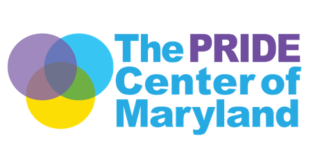
The Pride Center of Maryland, formerly the Gay, Lesbian, Bisexual, and Transgender Community Center of Baltimore and Central Maryland, is a 501(c)(3) nonprofit organization serving the lesbian, gay, bisexual and transgender population of Baltimore and the Baltimore metropolitan area, located at 2418 Saint Charles Street in Baltimore.
The Michigan Organization for Human Rights was a Michigan-based civil rights and anti-discrimination organization. It was founded in 1977 and disbanded in 1994, with most of its assets transferring to the University of Michigan Bentley Historical Library, Affirmations LGBT community center of Ferndale, and the Triangle Foundation—which replaced MOHR as the state's LGBT civil rights organization.
The Rainbow Round Table (RRT) of the American Library Association (ALA) is dedicated to supporting the information needs of LGBTQIA+ people, from professional library workers to the population at large. Founded in 1970, it is the nation's first gay, lesbian, bisexual, and transgender professional organization. While the current Rainbow moniker was adopted in 2019, the group has had various names during its 50-year history.
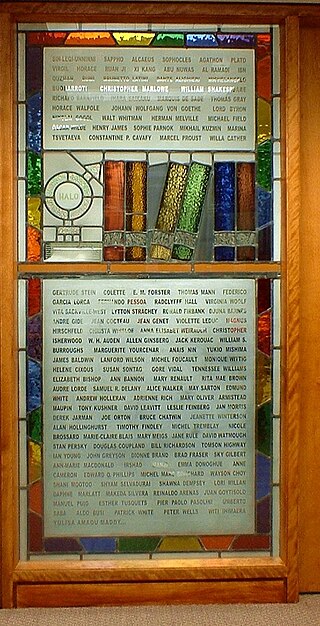
In the post-Stonewall era, the role of libraries in providing information and services to LGBTQ individuals has been a topic of discussion among library professionals. Libraries can often play an important role for LGBTQ individuals looking to find information about coming out, health, and family topics, as well as leisure reading. In the past 50 years, advocate organizations for LGBTQ content in libraries have emerged, and numerous theorists have discussed various aspects of LGBTQ library service including privacy concerns, programming, collection development considerations and librarian/staff education needs, as well as special services for juvenile and teen patrons.
New York has a long history of LGBT community building, activism, and culture which extends to the early history of the city.
Chicago has long had a gay neighborhood. Beginning in the 1920s there was active homosexual nightlife in Towertown, adjacent to the Water Tower. Increasing rents forced gay-friendly establishments steadily northwards, moving through Old Town and Lincoln Park along Clark Street and on to Boystown.
References
- 1 2 "NYC Hotline". GLBT National Health Center.
- 1 2 3 4 5 6 Greenberg, Stephen. "Gay Switchboard of New York records, 1972-1983: Finding Aid" (PDF). New York Public Library Archives & Manuscripts.
- ↑ Douglas, Martin (1990-05-02). "About New York; Gay Dentists? Flirting Advice? Call the Hot Line". The New York Times . Retrieved 2024-01-15.
- ↑ "Theater Listings". New York: 89. February 10, 1986.